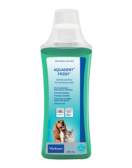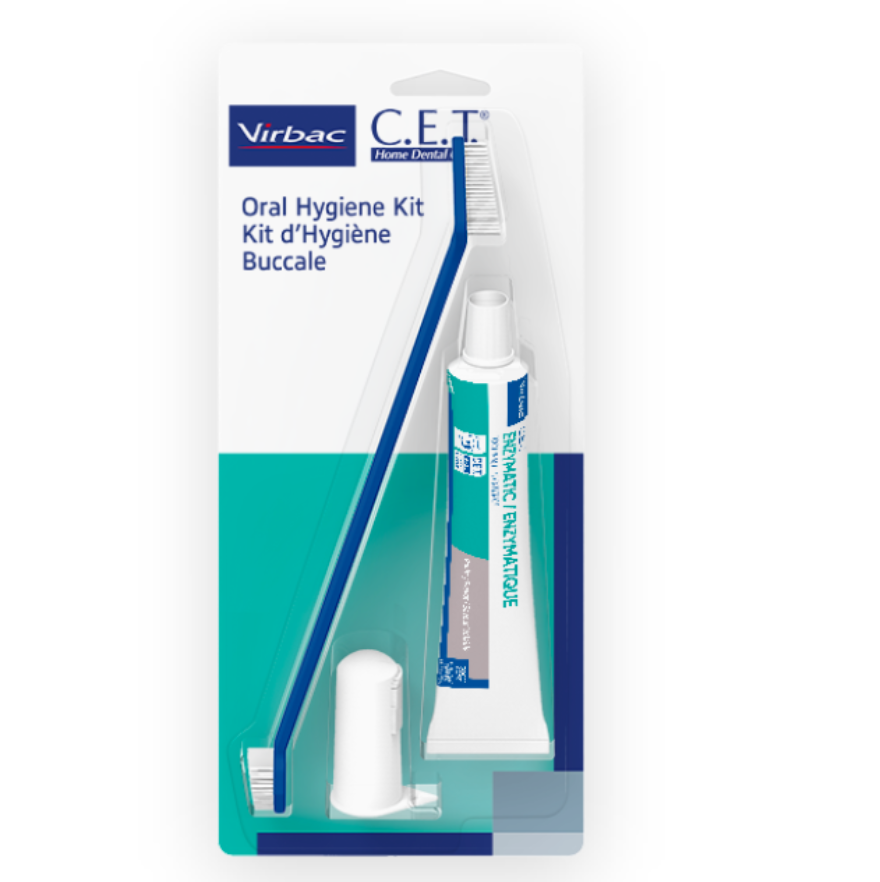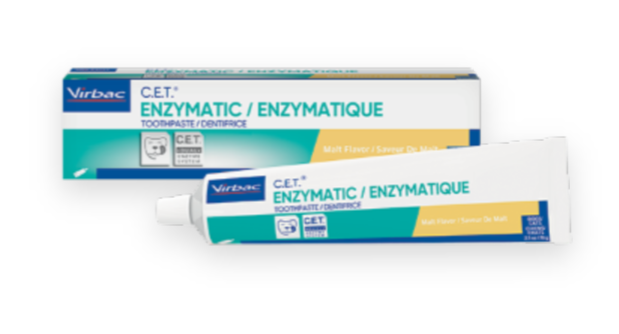
Dog Bad Breath: A Sign of Dental Problems?
If your dog's breath is smelling far from fresh, you might be tempted to brush it off. After all, doesn't every dog have "doggy breath"? Well, even though it's common, bad breath is actually not the norm in dogs. In fact, it could be a sign of a dental problem that needs attention. In this article, we'll explain what causes dog bad breath, how to fix it, and when to be concerned.
Understanding dog bad breath
Dog bad breath, also called canine halitosis, can happen for a number of reasons. The most common is a build-up of bacteria in the mouth, usually due to a lack of toothbrushing. If left unchecked, this bacterial build-up can lead to dental disease in dogs, which further contributes to dog bad breath (more on that below).
Diet is another common cause of dog bad breath. If your dog manages to scoff something unpleasant - think garbage, animal carcasses, or poop - this can understandably lead to stinky breath. However, even normal but strong-smelling food can leave an odour.
Other potential causes of dog bad breath include:
- Inflammation of the soft tissues (stomatitis).
- Infection of the teeth or gums.
- Airway infections, e.g. rhinitis.
- Digestive problems, e.g. stomach infections, vomiting, reflux.
- Systemic disease, e.g. kidney disease, liver disease, diabetes.
Dental disease in dogs
Just like human teeth, dog teeth need to be cleaned regularly to prevent a build-up of plaque and tartar. Plaque is a sticky substance that gathers on the teeth and under the gum line. If it's not removed, it hardens into tartar over time.
Plaque is full of bacteria, which create unpleasant-smelling compounds as they break down food. As plaque builds under the gums, it causes inflammation, swelling and bleeding of the gums - a condition known as gingivitis, or early periodontal disease. If periodontal disease advances - known as periodontitis - the gums start to pull away from the teeth and create pockets. Debris, like food and bacteria, gets trapped in these pockets, creating a foul smell as it decomposes.
Although less common, plaque is also responsible for tooth decay. The compounds released by plaque bacteria are highly acidic, eating away at the enamel on your dog's teeth to form cavities (holes). Just like periodontal pockets, cavities can trap debris and cause dog bad breath.
Both periodontal disease and tooth decay can cause dogs discomfort and pain, and may make it difficult for them to eat properly. Eventually, they can lead to the loss of dog teeth and create more serious health issues. If caught in the very early stages, however, both diseases can be stopped and the damage reversed. For that reason, proactive monitoring of your dog's oral health and regular vet check-ups are essential.
Remedies for dog bad breath
Once your vet has checked the oral health of our dog, here are some tips to help you fight bad breath:
Eating habits
If you know your dog has been eating things they shouldn't, fixing their bad breath may be as simple as securing garbage and litter trays, or removing their access to places where they can get their paws on illicit snacks. A change of food may also help.
Daily oral hygiene
Dental chews for dogs, like Veggiedent® FR3SHTM, are a great addition to their daily oral hygiene routine, especially if toothbrushing is proving difficult. The rough texture of the chew sloughs away bacteria and plaque, and stimulates saliva flow to keep the mouth clean and fresh.
Water additives
Water additives, like AQUADENT® FR3SH™, can be added to your dog's drinking water. They can help to freshen up your dog's bad breath, control bacteria, and limit plaque build-up.
When to visit the vet for dog bad breath
Any time you notice a change in your dog's oral health, it's a good idea to visit your vet. Catching gum disease or tooth decay early on means that treatment will be simpler, more effective, and less stressful for both you and your dog.
In addition to dog bad breath, look out for the following signs of dental disease and make an appointment right away:
- Yellow, brown or grey tooth discolouration.
- Loose or missing teeth.
- Red, swollen, bleeding gums.
- Rubbing or pawing at the mouth.
- Difficulty eating or loss of appetite.
- Excessive drooling.
Professional dental cleaning for dogs
Depending on your dog's dental condition, treatment may involve:
- A thorough dental cleaning to remove plaque and tartar.
- Cleaning and disinfection of periodontal pockets.
- Extraction of very loose or severely affected teeth.
During dog dental cleaning, the vet will use various tools to remove plaque and tartar from the teeth and under the gums, such as ultrasonic scalers and polishers, under general anaesthesia. Rest assured that sedation is safe for most dogs, and your vet will perform a thorough examination first to make sure your dog can safely be sedated.
The importance of dog dental care
Preventing dog bad breath and dental disease with good daily oral hygiene is always easier than curing it. And because dental disease is also linked to conditions like heart disease, a preventative approach to dental care can also help your canine friend to enjoy a great quality of life for longer. Brush your dog's teeth every day and schedule regular dog teeth cleanings with your vet so that they can help you keep plaque, bad breath and dental disease at bay. Your vet will be able to spot and treat any issues early, and can offer you tailored advice suited to your dog's individual health and wellbeing needs.




